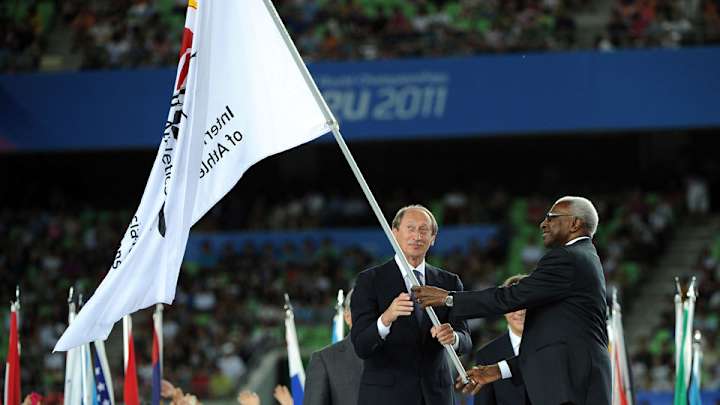IAAF officials explored cover up of Russian doping bans

The International Association of Athletics Federation knew the doping problems in Russia existed as early as 2009 and considered covering it up before the 2012 Olympics in London, according to a report by John Leicester of the Associated Press.
The IAAF was concerned that Russian athletes could die from abuse of blood-boosting drugs and transfusions.
Russia has been suspended by the IAAF from international competition after a Dec. 2015 report by the World Anti-Doping Agency showed evidence of systemic doping by athletes, coaches and agents as well as a cover-up by the sport’s governing body. Russian athletes could be barred from competing at the 2016 Olympics in August.
The Associated Press uncovered the results of emails that spanned over six years, letters and reports from the IAAF's anti-doping program. This information was uncovered around the same time that the IAAF launched the biological passport to detect blood doping. Findings after the 2009 IAAF World Championships found Russian athletes “recorded some of the highest values ever seen since the IAAF started testing.”
• UK Athletics calls to wipe clean all track and field world records
“This matter of the Russian athletes’ blood levels is now so serious and is not getting any better (in fact possibly getting worse) that immediate and drastic action is needed,” IAAF general secretary Pierre Weiss wrote in a note on Oct. 14, 2009, hand-delivered letter the president of the Russian athletics federation Valentin Balakhnichev.
“Not only are these athletes cheating their fellow competitors but at these levels are putting their health and even their own lives in very serious danger,” Weiss added.
Balaknichev was among three officials within the IAAF that was banned for life from the sport after an ethics commission by the IAAF found them guilty of having knowledge and covering up positive tests by Russian athletes in exchange for bribes.
Russia won 13 medals at the 2009 track and field world championships. Weiss was astounded at the high levels found in the tests from Berlin.
“In fact two of these athletes actually recorded some of the highest values ever seen since the IAAF started testing for blood,” he wrote. “These results are startling because not only are these athletes cheating their fellow competitors but at these levels are putting their health and even their own lives in very serious danger.”
IAAF officials also explored the possibility of hiding doping sanctions for less well-known Russian athletes from the public before the 2012 Olympics. The top tier Russian athletes would not be able to have their results hidden since they would also have to strip previous championship titles.
“It is impossible to 'discreetly' remove from competition for two years athletes who are multiple world and/or Olympic champions,” one note by the IAAF read. “Their absence from major competitions will inevitably prompt questions and investigations from experts and the media.”
Before the 2009 world championships, Weiss told Balakhnichev that Russian athletes were evading tests with the excuse that they were serving in the Russian military and could not give their whereabouts.
An internal brief after the 2009 world championships for then-IAAF president Lamine Diack of Senegal estimated that 42% of Russian elite athletes that were tested have doped. Doping by athletes from Turkey, Spain, Morocco and Ukraine was also suspected.
Diack was arrested by French authorities in November and placed under criminal investigation. A second report by WADA will be released on Thursday and is expected to focus on Diack and the IAAF's handling of Russian doping cover-ups under his presidency.
Notes also show that the IAAF proposed different protocol for the best-known elite Russians likely to win medals at the Olympics with “rapid and discreet” handling of doping cases. The IAAF would also work “in close collaboration” with the Russian athletics federation, for less well-known athletes who may fade from the public eye for competition without much notice.
Balakhnichev tells the Associated Press that the proposal was never put into practice, according to his knowledge. One note from 2011 said 10 Russian race walkers, as well as middle-distance and marathon runners, were eligible for the discreet approach to positive tests. Six of those athletes were banned for two years. Four others have yet to be disciplined including 2007 Boston Marathon winner Lydia Grigoryeva.
- Christopher Chavez
